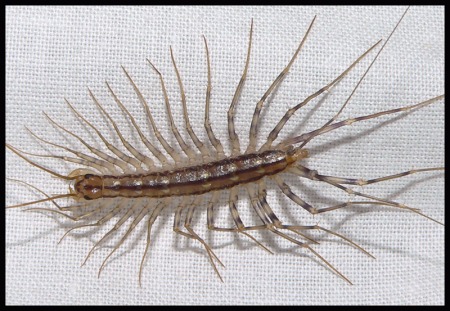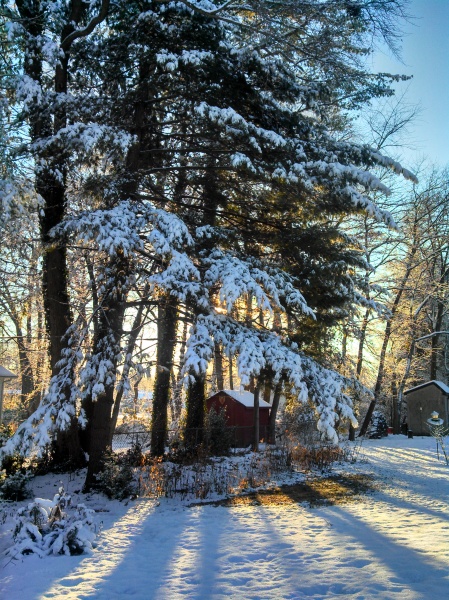po·et·ry (poh-i-tree) noun
writing that formulates a concentrated imaginative awareness of experience in language chosen and arranged to create a specific emotional response through meaning, sound, and rhythm.
writing that formulates a concentrated imaginative awareness of experience in language chosen and arranged to create a specific emotional response through meaning, sound, and rhythm.
- Merriam-Webster.com
___________________
po·et·ry (poh-i-tree) noun
saying as much as possible in as few words as possible, in a unique way
saying as much as possible in as few words as possible, in a unique way
- Me
__________________
“You can't write a good poem about sadness. But you can write a great poem about a homeless man sleeping on a park bench as it begins to snow on Christmas Eve.”
- Dr. Philip Cioffari
__________________
We can debate all day about what makes a good or bad poem, whether or not a poem should have rhyme or rhythm, if punctuation is needed after each line or at all, and if “pine” and “thin” are close enough to be considered as rhyming. All of that is important, but not for this post. For now, I don’t care about “what” a poem is as much as I care about “why" and "where.” Why do we write poems? Where do good poems come from?
A poem is not so much “writing” as much as it is “experiencing.” To explain all of this, I will go through the process of writing a poem that has not yet been written but a poem that has “asked” to be written. Let me explain by showing you the best poem I ever wrote, only about 30 years ago. Before I show you the poem, I need to explain why it was written.
I lived in my parents’ basement from about age 13 until 20. Occasionally, in basements, you see things. Bugs. I don’t know what the bug was, but there was one that tortured me for hours until I could not take it anymore.
On the basement walls were a few sports and music posters, a curtain covering a window, and a round mirror about a foot and a half in diameter. Occasionally, while either writing/sketching at my desk or blow drying my hair (it was the 70’s), I would see peripheral movement. I distinctly remember a night when I took a break, put down my pen, and tilted my head back to stretch my neck. When my head returned to a more level position, I saw the bug on the opposite side of the room near an Elvis Costello poster. It was grayish (the bug, not Elvis), looked about the size of a thumb, and was surrounded by nothing but legs. Centipede? Not sure, but it may as well have been called “Scott Tenorman” because I knew that it was going to die. (see: South Park)
I’m not a killer, not even for bugs. Instead of smashing them, I catch them and throw them outside. Sure, maybe they get eaten by birds, but at least I give them a chance. Except mosquitoes. That’s where I draw the line. This thing, however, was too big. I knew that before I went to sleep that night, it must be dead. I eventually got it, but then I needed to write about it.
Nobody would ever sit down and write a poem about trying to kill a bug unless they actually had to kill a bug. Most people kill bugs, throw them in the trash, and get back to business. And most people might tell their friends, “Hey, you should have seen what happened last week. There was this giant bug, and…” Sure, that’s fine. Nice story, but there is a more unique way to say it.
"Breaking Webs"
Just the thought of those countless
long legs and I panic,
lured to chase satanic shadows
into dark, dusty corners.
long legs and I panic,
lured to chase satanic shadows
into dark, dusty corners.
You rise from the woodwork
feel your way through the dark
hide behind my mirror.
All the while I want you
but despise you
coming nearer.
feel your way through the dark
hide behind my mirror.
All the while I want you
but despise you
coming nearer.
Many others I’ve slain, and you -
soon comes your time.
I wish that devil inside
knew the hell you drag me through.
soon comes your time.
I wish that devil inside
knew the hell you drag me through.
I wish you knew terror!
That at any time
I could move that mirror
then - your life would be mine!
And I wish I could tell you to run
because I don’t want it.
That at any time
I could move that mirror
then - your life would be mine!
And I wish I could tell you to run
because I don’t want it.
As I was writing about the bug and its legs, I noticed that it wasn’t just about killing a bug. It could also be about killing a woman, like a Jack the Ripper-type stalking a prostitute or something like that. But that’s not the important part, not now. The important part is that this poem could not be written without the experience.
_________________________
Now, let’s do this from the beginning but with a little extra poetry instruction. A few days ago I was looking through my basement window as the dog was whizzing in the backyard and I saw this tree.
It sparked a thought about trees in winter, and it was enough of an experience to make me think of a poem because – like I wrote earlier – people do not write poems. Poems write themselves through poets. Things happen everywhere, every day, 24/7. Some things go unnoticed. Some things are looked at for only a blink. But some things work their way into our thoughts in such a way that they need to be remembered, processed, and translated for others to experience too.
I looked at the pine tree holding all that snow, and I thought about other trees, unlike the pine, that lose their leaves in the fall. Oaks and maples, known as “deciduous,” drop their leaves as daily sunlight decreases. Conifers, like the pines, hold their needles all year, thus allowing them to hold large amounts of snow.
Obviously, the pine is different physically, but it made me think about the pine being different emotionally or psychologically. This brings in one of my favorite poetic devices: personification, in which you describe an inanimate object as if it has living qualities. The pine in the snow made me think of it as being mentally stronger and more willing to deal with winter while the oaks and maples were hibernating until spring.
Before writing the poem, I need to do some research and find some facts about ways in which the pines are different from oaks and maples. Obviously, it’s the leaves. That allows me to juxtapose the broad leaves versus the pine needles, bigger versus smaller, yet the smaller works harder during the winter.
So I had a choice: Just tell people that pine trees aren’t as strong or as tough as oaks and maples yet they seem to be ready all year, or make it more unique?
Winter's Man
Mother Nature offered herself to the Oak
.....His strong hands that hold riches of gold
.....Steady arms strong and bold
.....Inside his trunk a hundred rings
.....to Oak the Good Mother did sing
but Oak said, “I’ll be asleep until Spring”
.....His strong hands that hold riches of gold
.....Steady arms strong and bold
.....Inside his trunk a hundred rings
.....to Oak the Good Mother did sing
but Oak said, “I’ll be asleep until Spring”
Mother Nature met the Maple
.....Broad hands, sweet sugar in his veins
.....Enough muscle to fill bowling pins
.....the archer’s bow, the butcher’s block
.....to Maple the Good Mother let down her locks
but Maple said, “I’ve already set Autumn’s clock.”
.....Broad hands, sweet sugar in his veins
.....Enough muscle to fill bowling pins
.....the archer’s bow, the butcher’s block
.....to Maple the Good Mother let down her locks
but Maple said, “I’ve already set Autumn’s clock.”
Then Mother Nature purred at the Pine
.....No strong hands but needles short and thin
.....Not solid, but soft, willing limbs
.....Yet his green alive and the Fall he resist
.....to Pine she gave winter’s snowy kiss
and Pine said, “Sleep well, boys. I got this.”
.....No strong hands but needles short and thin
.....Not solid, but soft, willing limbs
.....Yet his green alive and the Fall he resist
.....to Pine she gave winter’s snowy kiss
and Pine said, “Sleep well, boys. I got this.”
________________________________________________




I always look forward to reading your posts
ReplyDeletethanks very much. greatly appreciated.
DeletePoetry is that stuff in school that I thought meant one thing and the teacher always said I was wrong and it meant something else.
ReplyDeleteyour teachers were idiots and didn't know how to teach poetry.
Delete